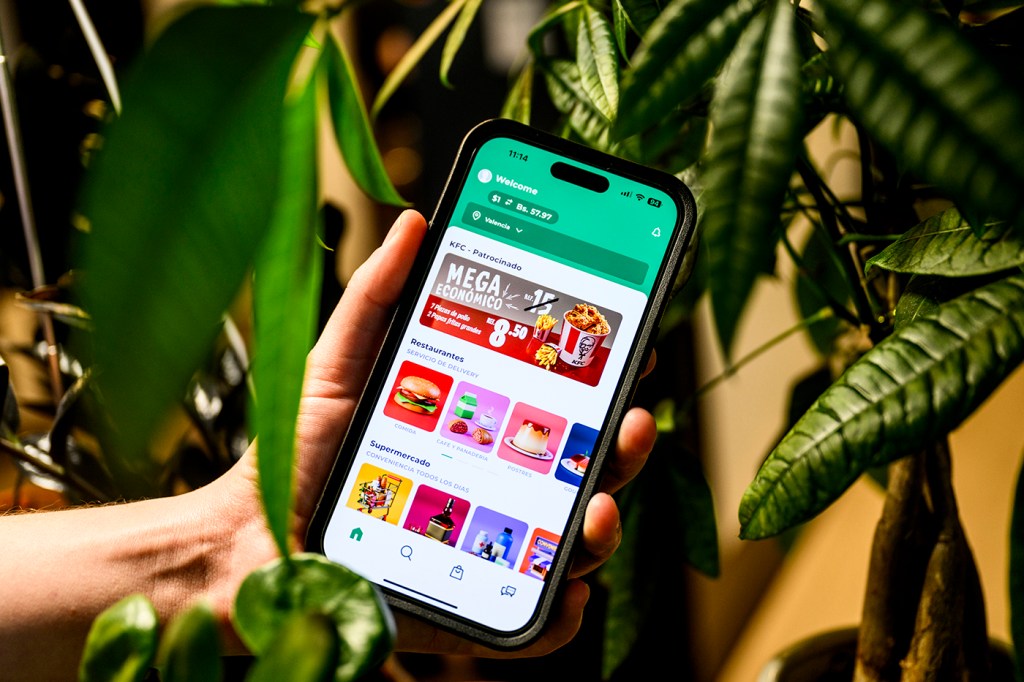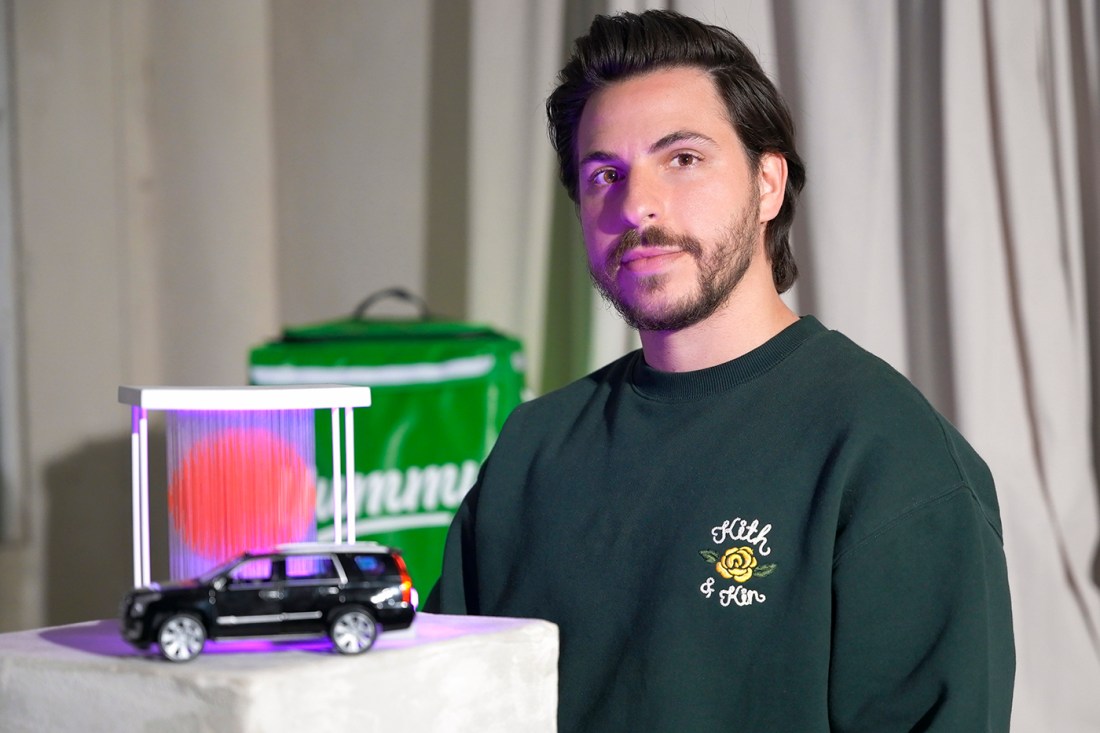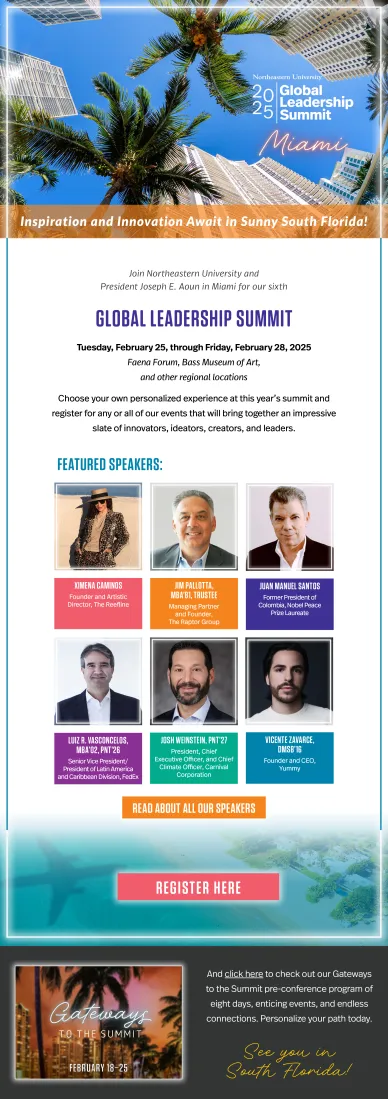How this Northeastern graduate turned a ‘Yummy’ idea into a $200 million business
Vicente Zavarce, who graduated from Northeastern in 2016, will speak at the Northeastern Global Leadership Summit in Miami taking place Feb. 25-28.

On its first day of business five years ago, the Yummy delivery app received 12 orders. Today, the e-commerce super app now completes 18 million yearly transactions across food delivery and transportation in Venezuela.
Northeastern University graduate Vicente Zavarce launched Yummy, Venezuela’s only delivery app, after receiving a degree in finance and entrepreneurship and a minor in emerging markets from the D’Amore McKim School of Business in 2016. Yummy is now valued at more than $200 million.
As success stories go, Zavarce’s Northeastern experience ranks pretty high.

“I wanted to create a brand that would not only span multiple consumer offerings under one umbrella, but also seamlessly adapt to the local landscape, blending innovation with a deep understanding of the people it serves,” said Zavarce, who will speak at the Northeastern Global Leadership Summit, which will take place in Miami Feb. 25-28.
Summit speakers will also include Juan Manuel Santos, former president of Colombia; Jim Pallotta, founder of The Raptor Group; Laura González-Estéfani, founder and CEO of TheVentureCity; and Raul Moas, president of Partnership for Miami.
They will be joined by Ximena Caminos, founder of the ReefLine; Josh Weinstein, CEO of Carnival Cruises; Adolfo Henriques, chair of Related Group; and Ben Brown, managing partner of Brookfield’s Real Estate Group.
Opportunity to get real-world experience
Zavarce knew he wanted to launch his own business when he started at Northeastern. The opportunity to get real-world experience through the co-op program is what drew him to the university.
In 2015, he did his second co-op, at Palo Alto-based investment banking firm Arbor Advisors, where he was able to work with business founders going through the merger and acquisition process.
“I saw, a couple of times, how amazing businesses were created for 10 to 20 years and how these founders had life-changing outcomes in these transactions,” he said. “It seemed like creating a tech company was a way to really change the way the world worked and to create true value in communities, but in a way that, at the end, you do get to capture a part of that value that you’ve created.”
Living in the Bay Area during that co-op ignited Zavarce’s passion for consumer technology and the potential it has to change business and lives.
“I realized that there was no way that I wasn’t going to be a tech entrepreneur,” he said.
After graduation, Zavarce worked at Wayfair.com on its growth marketing team. While working there, he continued to think back to his co-op at Arbor and skills that the investment banking firm’s CEO brought to the company.
“My realization in the Bay Area was that any founder/CEO needs to be more of a generalist than a specialist, but all of them need to have a superpower,” he said. “I can focus on how to grow a brand, how to acquire users efficiently, how to focus on having the best retention of an app or a website and how to acquire customers in the most efficient way possible.”
Vacuum of venture capital funding
In most of Latin America, he said, there was a vacuum of venture capital funding and startup culture. He saw a chance to build a brand that offers multiple consumer offerings adapted to the local landscape.
In Venezuela, he saw “a blue ocean of opportunity.”
Working in his home country, Zavarce faced an almost blank slate marketplace. There were no rideshare or food delivery apps, so he started a brand of his own based on his experience at Postmates, the pioneering on-demand delivery app, where he led user acquisition until the company was acquired by Uber. Today more than 4,500 grocery stores, restaurants and pharmacies in Venezuela partner with the Yummy app. Yummy also uses AI to automate sales for other companies that use WhatsApp Business.
Editor’s Picks
But getting Yummy off the ground required more than hard work. Venezuela closed its borders during the COVID lockdown, leaving Zavarce stranded in Los Angeles.
“I was literally a remote CEO,” he said.
At 30, Zavarce looks back on jobs he had after college, including two years at Postmates, and he sees a through line to his role as a founder and CEO. His first jobs gave him the close-up experience in business tech and strategy he needed to start his own company.
He embodies the Northeastern work ethic
But one of the most important things of all, he got from his time at Northeastern.
“From a work ethic perspective, Northeastern changed me. I work really hard,” said Zavarce.
Based in Caracas, Yummy employs 250 people and 50,000 drivers to deliver food, groceries and transportation to users throughout Venezuela. More than a million Venezuelans used Yummy at least once last year, Zavarce said.
But a diploma and a good work ethic aren’t all Zavarce received from Northeastern. In his sophomore year writing class he met his future wife, Jenn.
“I walked her from class to her dorm and we scheduled dinner,” he recalled. “We went to dinner in the North End and we’ve never stopped dating.”
His Northeastern roommate, Diego Salas, was a childhood friend in Venezuela and is now Yummy’s chief financial officer.
“He was my very first investor in Yummy,” Zavarce said. “After he got his MBA from Harvard, we both agreed that he should join Yummy as my CFO.”

In Venezuela, driving for Yummy can bring in enough money to help people achieve their own dreams — something that makes Zavarce proud. During routine calls to customers, Zavarce contacted a few drivers who had stopped using the platform. One of them, it turned out, had stopped because he had earned enough to put himself through flight school.
“After a year of driving for Yummy, he became a commercial pilot,” Zavarce said. “I think that’s a really good case study of the economic impact of multi-sided marketplaces.”











